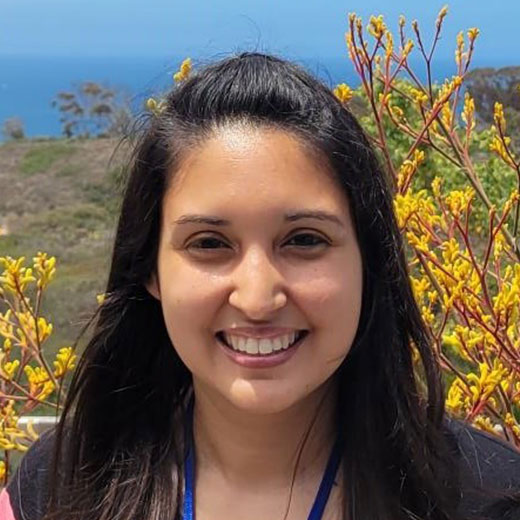
Related
Erin Garza is an assistant professor in the Microbial and Environmental Genomics Group at JCVI specializing in synthetic biology. Dr. Garza’s research involves genetically engineering bacteria and diatoms to produce compounds of interest, elucidating plastic degradation pathways in marine organisms, domesticating and characterizing genetic parts for DNA cloning libraries, and developing and optimizing cloning techniques for non-model organisms.
Dr. Garza has worked on numerous research projects, but her main interest involves studying the microbiome of deep-sea plastics in an attempt to locate new plastic degrading organisms and to determine the effects plastic pollution is having on the ocean and its inhabitants. Her work has even allowed her to personally travel to the bottom of the ocean using the HOV Alvin to a depth of 6,110 meters.
Dr. Garza received her master’s and PhD in microbiology from Northern Illinois University. Her graduate work involved genetically engineering biofuel pathways, like homoethanol and butanol, into Escherichia coli.
Research Priorities
Deep-sea plastisphere study
- Sampling deep-sea plastics for metagenomic and metatranscriptomic studies
- Performing plastic incubations in sea water and sediment collected from various depths to enrich for plastic degraders
- Determining DOC of sea water before and after exposure to plastic
- Performing SEM on plastic biofilms
Developing a diatom model organism Phaeodactylum tricornutum
- Characterizing gene expression under various growth conditions and determining the effects of promoter-terminator fidelity
- Building a genetic toolbox for cloning
- Using fluorescent proteins to determine protein localizations, especially those located within the carbon-concentrating mechanism
Engineering relevant marine microbes
- Developing cloning methods and DNA libraries for Alteromonas macleodii
- Designing, cloning, and characterizing plastic degradation pathways